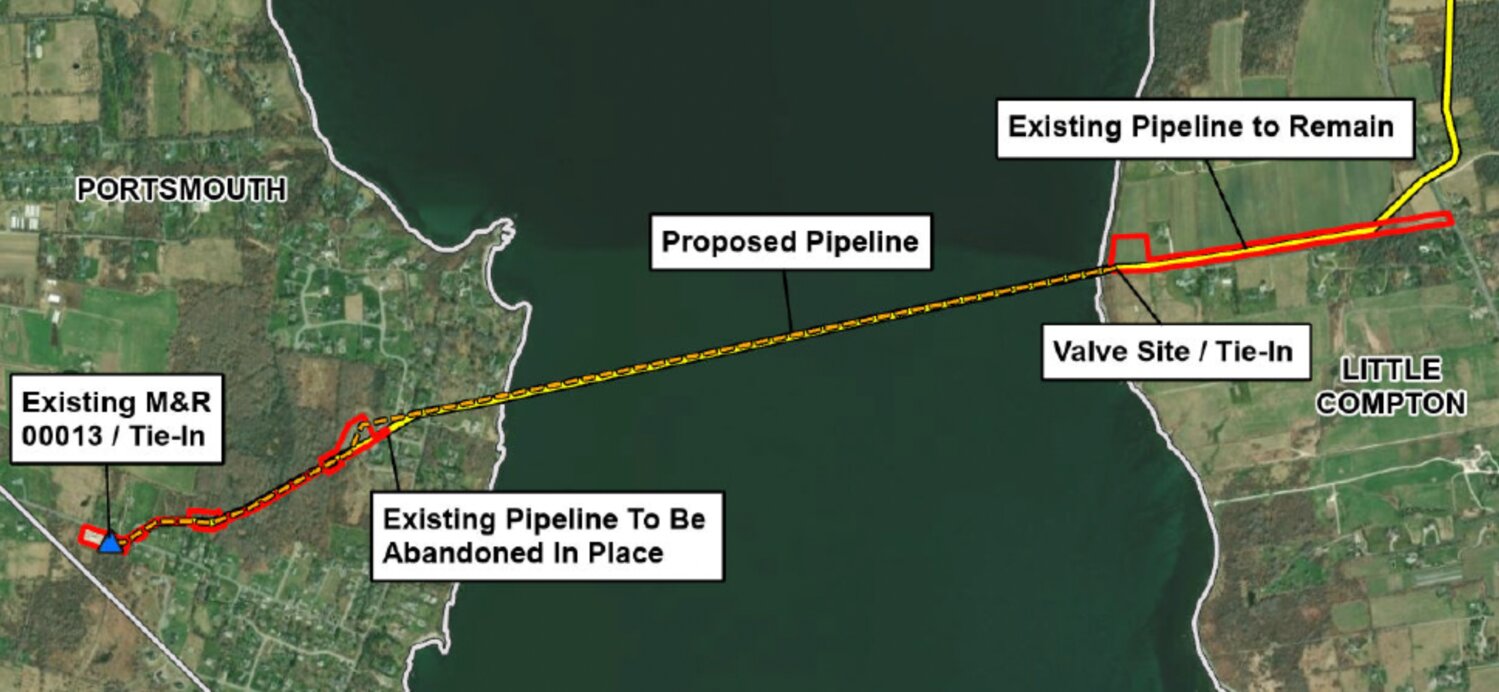Protests filed for Sakonnet River LNG pipeline
Algonquin Gas proposes drilling, trenching to replace 70-year-old line from Portsmouth to Little Compton
A Canadian energy company subsidiary is proposing to replace a 70-year-old liquefied natural gas transmission pipe under the Sakonnet River, a project company officials say will increase capacity and …
This item is available in full to subscribers.
Please log in to continue |
Register to post eventsIf you'd like to post an event to our calendar, you can create a free account by clicking here. Note that free accounts do not have access to our subscriber-only content. |
Day pass subscribers
Are you a day pass subscriber who needs to log in? Click here to continue.
Protests filed for Sakonnet River LNG pipeline
Algonquin Gas proposes drilling, trenching to replace 70-year-old line from Portsmouth to Little Compton
A Canadian energy company subsidiary is proposing to replace a 70-year-old liquefied natural gas transmission pipe under the Sakonnet River, a project company officials say will increase capacity and improve natural gas service to the area. But there has been some resistance to the project, which is currently up for review before the Federal Energy Regulatory Committee (FERC).
Algonquin Gas Transmission, a subsidiary of Enbridge, based in Calgary, Canada, owns a six-inch gas line installed in 1954 that runs from the bottom of Old Mill Lane in Portsmouth to Patten Lane in Little Compton. The plan is to use horizontal drilling and trenching — termed in FERC documents as “cut and cover“ — to lay a new 12” line alongside the existing smaller line. Once the new line is in place and operational, the plan is to decommission, fill and seal the old line.
But volunteers from an environmental group that opposes the project say both piping techniques could cause disruption to wildlife, through sediment kicked up by trenching and by “frac out,” a term for the unintentional release of drilling fluids into the environment.
On Friday, opponents held a webinar on the current state of the project, using information compiled from No Fracked Gas in Massachusetts, and the Pipe-Line Awareness Network for the Northeast.
“Cut and cover trenching is very disruptive to the environment of the work space,” opponents wrote in a Powerpoint demonstration introduced at the meeting. “Horizontal directional drilling is often touted as much less disruptive, but can experience accidents through frac-outs, which leaks drilling mud into the environment, causing even more disruption.”
The project would run along an existing right of way established when the original pipeline was laid. On the Portsmouth shore, it would come ashore and go through Cotton Swamp, and then terminate near the bottom of Old Mill Lane — documents show work would take place within 10 feet of at least four homes, and would go under at least one home. On the Little Compton side, the work would take place along Patten Lane, extending to the shoreline and on a largely undeveloped stretch of land just to the north.
Martha Klein, of the regional group that opposes the expansion of fracked gas infrastructure in the northeast region, said Friday’s webinar was a chance to give abutters and concerned citizens information on why “construction to expand fracked gas transport and use is dangerous, expensive, contrary to most New England states’ greenhouse gas reduction targets, and makes our energy grid less safe and reliable.”
FERC officials set Monday, April 8 as a deadline for members of the public to file comments, protests and motions to intervene.
Rosemary Wessel, of No Fracked Gas in Mass, said during Friday’s webinar that file protests are important as Algonquin Gas has proposed the project under “blanket authority,” meaning it is being filed under permits approved by FERC in 1987 and thus, does not need to include an environmental impact statement and other requirements.
If qualifying protests were received by the deadline, there is a 30-day “reconciliation period” to resolve them. If the issues are not resolved or it is denied, Enbridge must file a full application.
“It’s a ridiculously old permit,” Wessel said of the permit under which Algonquin is proposing to work.
“Lots of things have changed, lots of regulations have changed, and they shouldn’t be able to file under an existing permit.”
If the project is approved, Algonquin plans to commence construction some time this spring.
:






